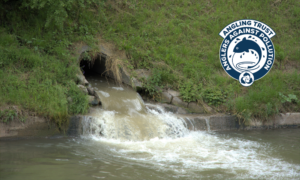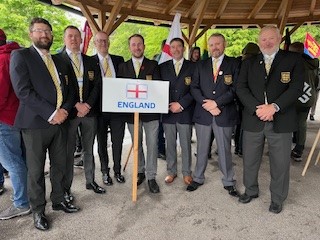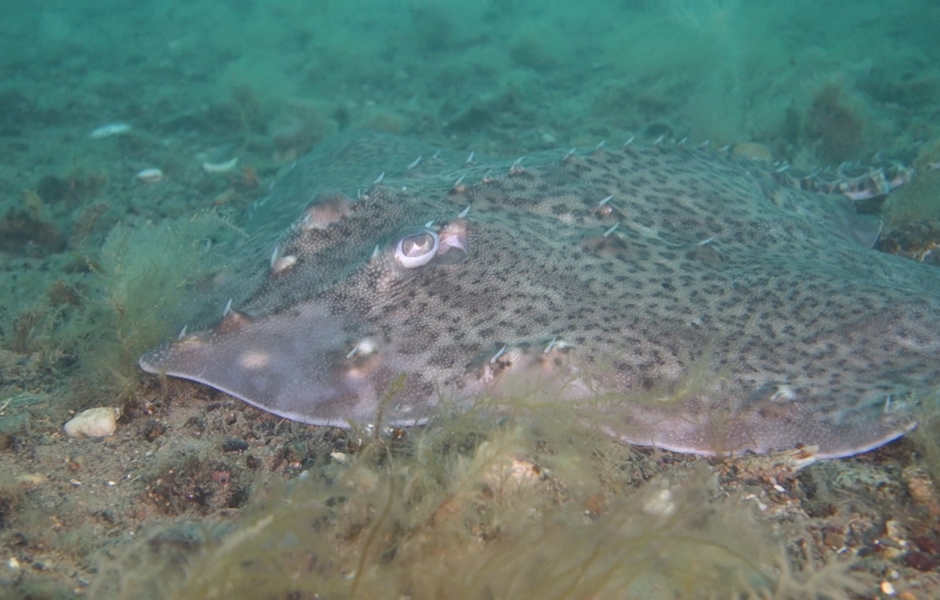
Lines On The Water
Angling Trust Presses Water Commission to Go Faster and Further

In April, the Angling Trust submitted a detailed response to the Independent Water Commission, outlining the reforms needed to make the failing water industry fit for purpose. Now, as the Commission publishes its interim report, we assess how it compares with our recommendations to begin fixing the broken water sector.
Overview
We called for the creation of a single water regulator and an end to the inefficient separation of financial and environmental oversight. At present, the Environment Agency (EA) sets standards, while OFWAT often fails to approve the investment needed to meet them. We proposed abolishing OFWAT, reforming the EA, and unifying regulatory oversight. It has never made sense to have two entirely separate regulators since privatisation — economic and environmental impacts are inseparable.
The current focus on keeping bills low has led both OFWAT and the government to neglect resilience — whether against floods, droughts, or climate change. Many water industry assets are now well beyond their intended lifespan. We urged the Commission to consider a single regulator responsible for the entire sector — including supply, wastewater, drinking water standards, prices, and investment. Environmental standards should be legally enshrined and set by a new regulator — potentially combining the EA and Natural England — with enforcement powers.
Protecting the environment and ensuring enough high-quality water to support habitats and wildlife must be central. We advocated strongly for retaining the Water Framework Directive (WFD) as the key mechanism for achieving a healthy water environment.
We also called for improved transparency and accountability, including 11 powerful Regional Water Commissioners — appointed by the Environment Secretary and answerable to Parliament — to act as watchdogs for each water company.
Commentary
We welcome the interim report by Sir Jon Cunliffe and the Commission but urge them to go faster and further. It is encouraging they now recognise — as we have long said — that the water system and its governance are broken. As Sir Jon states: “Too often, policy has been shaped by short-term pressures rather than by sustained, coherent planning.”
The call to reform regulation is long overdue. Regulators must be properly funded, skilled, and empowered to hold companies and polluters to account. This is essential in a monopolistic industry that must regain public trust and prioritise environmental protection.
The current system is riddled with confusion and overlapping responsibilities. We need more effective, proactive regulators, better technology use, and stronger focus at catchment level.
We support the Commission’s recognition of the need for long-term strategic direction from government in England and Wales. A new Water Bill is urgently needed to clarify governance, national priorities, and to better protect our rivers, lakes, chalk streams, and species such as Atlantic salmon.
The starting point for a comprehensive water strategy must be a healthy environment capable of meeting national water needs. The WFD is essential for coordinated ecological action — yet the Commission’s stance on its future remains unclear.
Reforms must raise ambition, improve delivery, and expand ecological scope. They must not be used to weaken protections, as we are seeing in the Planning and Infrastructure Bill.
Key Areas of Concern
- We are disappointed the interim report avoids several critical issues:
- Ending developers’ automatic right to connect to already overstretched sewers
- Ring-fencing fines to fund environmental restoration
- Expanding monitoring to cover emerging pollutants
- Removing perverse incentives in pollution targets
- Addressing overlapping, ineffective regulation
- Promoting citizen science and water quality monitoring
- Reforming corporate governance within water companies
- We believe structural change, including publicly accountable Water Commissioners, is essential to restore public trust. While investors must earn returns, unchecked profit-taking and executive bonuses must end. We urge the Commission to go further in its final report and back these proposals.
Analysis: Angling Trust Recommendations Missing from the Interim Report
While we welcome the Commission’s support for forward-looking asset health mapping, we believe OFWAT — responsible for past regulatory failure — cannot be trusted to lead this work.
Water Commissioners
- We proposed regional Water Commissioners, nominated by the Secretary of State and approved by Parliament, to act as independent public and environmental watchdogs. These Commissioners would attend board meetings, hold executives to account, and act as ombudsmen.
- While the report explores improving consumer voice — including possible board representation — it does not propose this Commissioner model.
Water Framework Directive
- We strongly advocated for detailed, legally binding Programmes of Measures (PoMs) for each water body, as confirmed by the recent High Court judgment (SSEFRA v Pickering Fishery Association).
- The report refers to delivery and milestones via River Basin Management Plans (RBMPs) but omits any reference to legal PoMs or this court ruling.
Emerging Pollutants
- We called for expanded monitoring of pollutants such as forever chemicals, pharmaceuticals, and microplastics.
- Although the report mentions updating regulations and extended producer responsibility, it does not explicitly commit to monitoring these emerging threats.
Developer Connections
- We proposed ending the automatic right to connect to the sewer network and requiring developers to provide treatment upgrades as part of planning.
- This recommendation is not reflected in the interim legislative conclusions.
Reinvestment of Fines
• We urged that fines levied from enforcement be ring-fenced for environmental recovery. The interim report does not mention this.
Perverse Incentives
• We highlighted how phosphate reduction targets may encourage investment in large treatment works rather than headwaters, where ecosystems are often more sensitive.
• While the report acknowledges regulatory rigidity, this specific issue is not addressed.
Sludge Regulations
• We proposed legislative reform of the outdated Sludge (Use in Agriculture) Regulations 1989 to address pollution from emerging contaminants.
• The report notes gaps in sludge oversight but does not identify these regulations for priority reform.
Price Review Process
• To address long-term planning and supply chain risks, we suggested ending the five-year Price Review cycle.
• The Commission considers the five-year cycle “broadly appropriate” but suggests providing more certainty alongside it — rather than replacing it.
Asset Health
• We stressed the poor condition of water infrastructure and the need for a proactive, audit-based approach, moving beyond retrospective failure metrics.
• We welcome the Commission’s recognition of the need for a resilience framework, including:
• National resilience standards
• Mandatory reporting of asset data
• A stronger supervisory role for the regulator
However, OFWAT’s continued involvement is deeply problematic. Its failure to push for better metrics and investment has contributed significantly to the current crisis. Our proposed Water Commissioner model, alongside a single, strengthened regulator, offers a path forward.
Conclusion
The Angling Trust welcomes the Commission’s interim report as a much-needed first step — but more ambition and urgency are required. The environmental health of our rivers and lakes cannot wait.
The final report must go further, embracing bold structural reform, clear accountability, and tougher protections to restore public confidence and environmental integrity.
We remain committed to working with the Commission and government to ensure the final recommendations reflect the scale of the crisis and the opportunity to fix a broken system — once and for all.
You might also like

What to do if fish are gasping or spawning.…

WORLD CHAMPS GOLD FIRMLY IN THE SIGHTS OF ENGLAND…

We Fish as One supports Pride Month 2025

Sunglasses giant backs Angling Trust

Join in with the Check, Clean, Dry campaign this…

From TikTok to the classroom – Orchard School follows…

DRENNAN ENGLAND FEEDER TEAM WIN WORLD CHAMPS!

Family fishing at Aston Park Fisheries where have a…

FOURTEEN SIDES ALREADY THROUGH TO SUPERCUP ROUND 2!

SIXTH FOR ENGLAND AT FLY WORLD CHAMPS

Much needed new European Management Plan for Cormorants moves…

A Turning Tide: Why Ending Bottom Trawling in MPAs…

What to do if fish are gasping or spawning.…

WORLD CHAMPS GOLD FIRMLY IN THE SIGHTS OF ENGLAND…

We Fish as One supports Pride Month 2025

Sunglasses giant backs Angling Trust

Join in with the Check, Clean, Dry campaign this…

From TikTok to the classroom – Orchard School follows…

DRENNAN ENGLAND FEEDER TEAM WIN WORLD CHAMPS!

Family fishing at Aston Park Fisheries where have a…

FOURTEEN SIDES ALREADY THROUGH TO SUPERCUP ROUND 2!

SIXTH FOR ENGLAND AT FLY WORLD CHAMPS

Much needed new European Management Plan for Cormorants moves…

A Turning Tide: Why Ending Bottom Trawling in MPAs…

What to do if fish are gasping or spawning.…

WORLD CHAMPS GOLD FIRMLY IN THE SIGHTS OF ENGLAND…

We Fish as One supports Pride Month 2025

Sunglasses giant backs Angling Trust

Join in with the Check, Clean, Dry campaign this…

From TikTok to the classroom – Orchard School follows…

DRENNAN ENGLAND FEEDER TEAM WIN WORLD CHAMPS!

Family fishing at Aston Park Fisheries where have a…

FOURTEEN SIDES ALREADY THROUGH TO SUPERCUP ROUND 2!

SIXTH FOR ENGLAND AT FLY WORLD CHAMPS

Much needed new European Management Plan for Cormorants moves…









